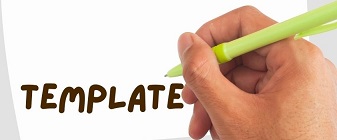The Influence of Assignment of Lecturers at School (ALS) Program on Students Learning Motivation in Tarakan City
(1) Universitas Borneo Tarakan
(2) Uiversitas Negeri Makassar
(3) Universitas Borneo Tarakan
(*) Corresponding Author
DOI: https://doi.org/10.26858/ja.v6i1.9983
Abstract
Borneo Tarakan University which is the only State University that prepares educators in the North Kalimantan region to take part to help realize the School Lecturers Assignment Program (LAS) which is a program from the Ministry of Research, Technology and Higher Education which aims to facilitate lecturers to directly becoming "teachers" in the School to improve the quality of prospective teacher students. The aims of study of: to know the description of Assignment of Lecturers at School (ALS) program, to know the description of student learning motivation, and to know the influence of the Assignment of Lecturers at School (ALS) program on student motivation in Tarakan City. The techniques used in collecting data are observation, questionnaires, and observation. While data processing and data analysis is done by descriptive analysis and inferential statistical analysis. The results of the study show that the description of the implementation of lecturer assignments in schools in a good category, while students learning motivation in the high category, and there a positive and significant influence between the implementation Assignment of Lecturers at School (ALS) program in learning motivation in Tarakan, which was 52.5%
Full Text:
PDFReferences
REFERENCES
Borko, H. (2004). Professional Development and Teacher Learning: Mapping the Terrain. Educational Researcher. https://doi.org/10.3102/0013189X033008003
Darling-Hammond, L., Hyler, M. E., & & Gardner, M. (2017). Effective teacher professional development. Learning Policy Institute. https://doi.org/10.1016/j.fusengdes.2007.07.052
Daskalovska, N., Gudeva, L. K., & Ivanovska, B. (2012). Learner Motivation and Interest. Procedia - Social and Behavioral Sciences. https://doi.org/10.1016/j.sbspro.2012.05.272
Deci, E. L., Koestner, R., & Ryan, R. M. (2001). Extrinsic Rewards and Intrinsic Motivation in Education: Reconsidered Once Again. Review of Educational Research. https://doi.org/10.3102/00346543071001001
DePasque, S., & Tricomi, E. (2015). Effects of intrinsic motivation on feedback processing during learning. NeuroImage. https://doi.org/10.1016/j.neuroimage.2015.06.046
Direktorat Pembelajaran. (2018). Panduan program hibah Penugasan Dosen di Sekolah (PDS).
Emmer, E. T., & Stough, L. M. (2001). Classroom management: A critical part of educational psychology, with implications for teacher education. Educational Psychologist. https://doi.org/10.1207/S15326985EP3602_5
Djamarah, Syaiful, Bahri. 2010. Strategi Belajar Mengajar. Jakarta: Rineka Cipta.
Ghozali, Imam. 2011. Aplikasi Analisis Multivariete dengan Program IBM SPSS 19 Edisi 5. Semarang. Badan Penerbit Universitas Diponegoro.
Harden, R. M., & Crosby, J. R. (2000). The Good Teacher is More Than A Lecturer. Medical Teacher. https://doi.org/10.1080/014215900409429
Hawk, T. F., & Shah, A. J. (2007). Using Learning Style Instruments to Enhance Student Learning. Decision Sciences Journal of Innovative Education. https://doi.org/10.1111/j.1540-4609.2007.00125.x
Johan, K. (2015). Perception of Students Towards Lecturers Teaching Engineering Courses with Industry Experience: A Case Study in Malaysia Technical University. Procedia - Social and Behavioral Sciences. https://doi.org/10.1016/j.sbspro.2015.06.372
Koca, F., & Ph, D. (2016). Motivation to Learn and Teacher – Student Relationship. Journal of International Education and Leadership, 6(2), 1–20.
Lin-Siegler, X., Dweck, C. S., & Cohen, G. L. (2016). Introduction: Instructional interventions that motivate classroom learning. Journal of Educational Psychology. https://doi.org/10.1037/edu0000124
Lumsden, L. S. ., Learn, T., & Digest, E. (1994). Student Motivation To Learn. ERIC Digests. https://doi.org/10.1503/cmaj.160179
Marrero, M. E., Woodruff, K. A., Schuster, G. S., & Riccio, J. F. (2010). Innovative Teacher Professional Development. International Review of Research in Open and Distance Learning. https://doi.org/10.3102/0013189X033008003
Nurwardani. 2018. Panduan Program Hibah penugasan Dosen di Sekolah (PDS). Jakarta. Direktorat Jenderal Pembelajaran dan Kemahasiswaan Kemenristekdikti.
Peacock, M. (2003). Motivational Strategies in the Language Classroom. English for Specific Purposes. https://doi.org/10.1016/S0889-4906(02)00009-1
Pintrich, P. R. (2003). Motivation and Classroom Learning. In Handbook of Psychology. https://doi.org/10.1002/0471264385.wei0706
Riduwan. 2009. Metode dan Teknik Menyusun Proposal Penelitian. Bandung: Alfabeta.
Roulston, K. (2010). “There is no end to learning”: Lifelong education and the joyful learner. International Journal of Music Education. https://doi.org/10.1177/0255761410381822
Sardiman. 2012. Interaksi & Motivasi Belajar Mengajar. Jakarta: Rajawali Pers
Seifert, T. L. (2004). Understanding student motivation. Educational Research. https://doi.org/10.1080/0013188042000222421
Su, C. H., & Cheng, C. H. (2015). A mobile gamification learning system for improving the learning motivation and achievements. Journal of Computer Assisted Learning. https://doi.org/10.1111/jcal.12088
Sugiyono. 2010. Metode Penelitian Pendidikan Pendekatan Kuantitatif, Kualitatif dan R&D. Bandung: Alfabeta.
Thoonen, E. E. J., Sleegers, P. J. C., Peetsma, T. T. D., & Oort, F. J. (2011). Can teachers motivate students to learn? Educational Studies. https://doi.org/10.1080/03055698.2010.507008
Timperley, H., Wilson, A., Barrar, H., & Fung, I. (2008). Teacher professional learning and development. The International Academy of Education. https://doi.org/10.1002/hrm
Tschannen-Moran, M., & Hoy, A. W. (2001). Teacher efficacy: Capturing an elusive construct. Teaching and Teacher Education. https://doi.org/10.1016/S0742-051X(01)00036-1
Wang, J., Lin, E., Spalding, E., Odell, S. J., & Klecka, C. L. (2011). Understanding Teacher Education in an Era of Globalization. Journal of Teacher Education. https://doi.org/10.1177/0022487110394334
Article Metrics
Abstract view : 569 times | PDF view : 69 timesRefbacks
- There are currently no refbacks.
Copyright (c) 2019 Jurnal Ad'ministrare

This work is licensed under a Creative Commons Attribution-NonCommercial-NoDerivatives 4.0 International License.






























 under a
under a